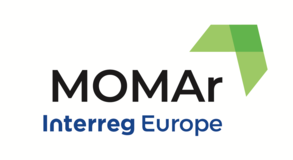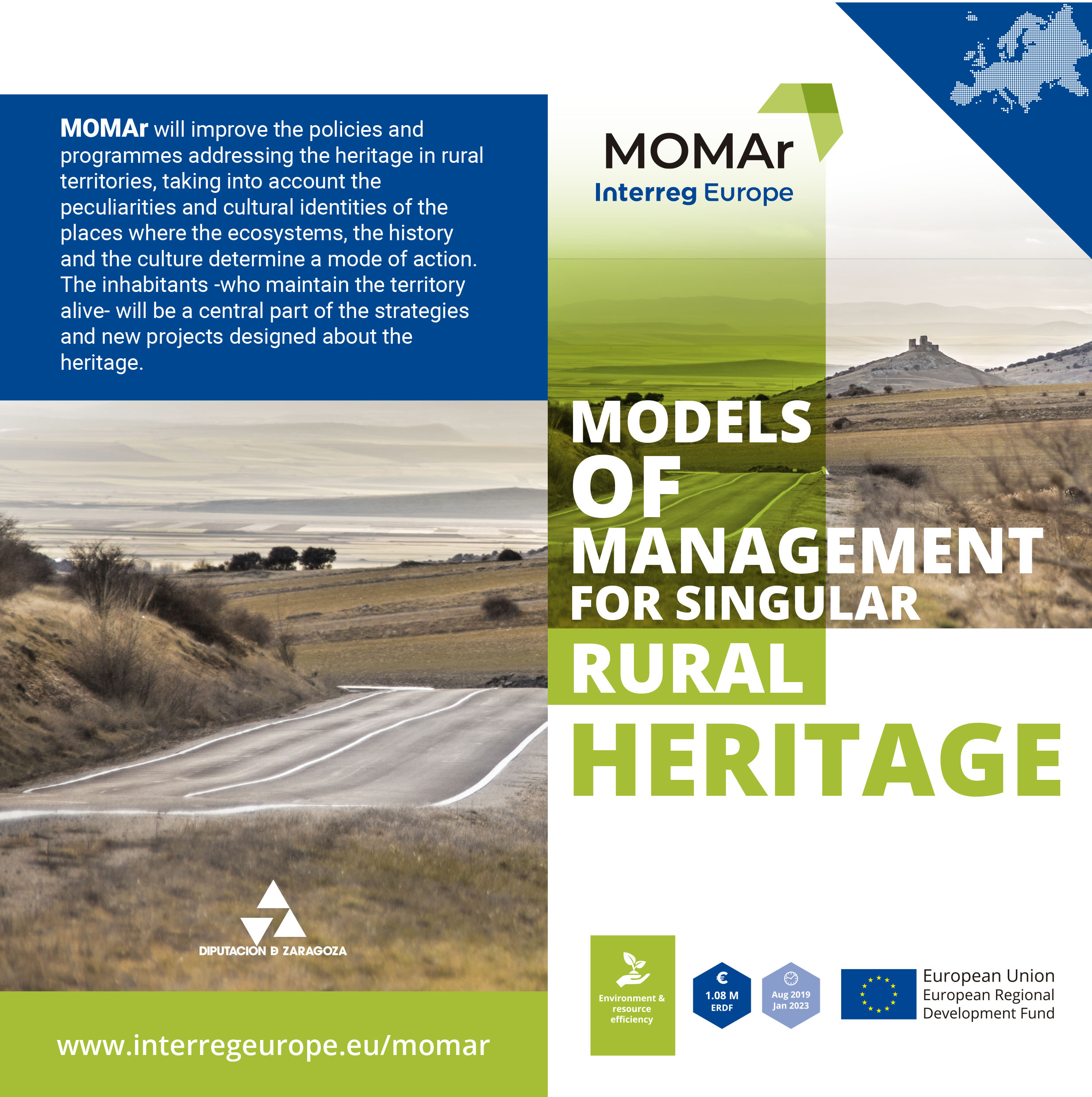MOMAr is arriving at the end, and it is time to present the results of four years of work. Therefore, the lead partner, the Provincial Government of Zaragoza, hosted the final conference of the project where more than 60 experts from the field of Heritage Management and political representatives from the five partner countries (Czech Republic, Germany, the Netherlands, Romania, and Spain), as well as a large group of stakeholders, were invited.
Final Conference
The Provincial Government of Zaragoza (DPZ) opened the event, welcoming the large audience, and highlighting the importance of taking care of heritage management: “the management of natural and monumental heritage generates employment, identity, structure and ideas”, declared Juan José Borque, coordinator of the Citizenship Area of DPZ.
Irene Ruiz, scientific manager of MOMAr, presented the Handbook of good practices, a summary of the project partners' research and exchange work, which includes more than 50 initiatives aimed at inspiring the management of rural heritage. Ruiz indicated in this regard that "the key to this project has been sharing experiences", and she has hoped that this handbook will inspire new managers. "The need to manage rural heritage does not end with MOMAr, so we hope to contribute to new ideas and future application models", she concluded.
The implementation of this fieldwork was shown with the presentation of the action plans carried out by each partner. Its representatives described how the influence of other models allowed them to import new ways of working and effectively activate actions and projects that have already started or will do so in the coming months, by the change of specific policy instruments. In South Bohemia, the project manager, Matouš Radimec, explained how they are going to re-open the Orty site for visitors, an old China-clay mine that it is planning to offer not only the possibility to visit the mineshafts but also a visitor centre adjacent to it. Besides, Radimec concluded: “the knowledge and trends from MOMAr increased the capacity of RERA staff and several stakeholders in innovative approaches towards management models of rural heritage, all this learning will be exploited in other projects, too. As an example, a project for a visitor centre in Trocnov centre”. The project manager of Mehedinti County, Alexandra Varzan, presented the two actions they are going to complete, the creation of the Plesa Palace Cultural Hub and the digitalization of the patrimony of the Iron Gates Region Museum. Varzan also pointed out the impact of MOMAr on their organization: “MOMAr has offered the opportunity to the county representatives and their stakeholders to learn about efficient management strategies and how to valorise its natural and cultural heritage by participating in the experience exchanged events”. Afterwards, Anne-Marie Goudzwaard, the project leader of the Heritage Lab of Groningen, explained this new project which has been already inaugurated and will be a 10-year programme aiming at different policy instruments and focusing not only on theory but on practical learning and experimental. As Goudzwaard indicated, the main goals of the Heritage Lab are “to gather and connect the heritage network, to be a place for innovative ideas, creation, experimentation working together; to reposition heritage in the North of the Netherlands and to connect new techniques and research with old issues”.
Thereafter, Nadine Schulz, project manager of Saxony-Anhalt, described the progress of its Action Plan focused on the opening of a bakehouse in the church of Schernebeck village, the project is a response to the current challenges in rural areas, the neglection of religious buildings and the need to offer new spaces to the inhabitants according to the demographic changes and new lifestyles trends. The construction works began this 2023 and they are planned to finish in September. Finally, Isabel Soria, project manager in DPZ, presented their activity focused on the integral management of the salt production heritage of the province of Zaragoza, spearheading the management of the important industrial salt production heritage of the town of Remolinos. “In addition to serving the territory, what we want is to implement our action plan so that it is a focus of development; our action plan has only just begun, this project has united us around heritage, and MOMAr owes a lot to all of you who are with us today”, ended Soria.
Camille Milloir, Interreg Europe officer, also participated in the Final Conference and congratulated MOMAr for its good results, highlighting its particular focus on improving rural areas’ heritage.
Find out more about the Action Plans and their results by watching the videos partners presented during the Final Conference. Click here












